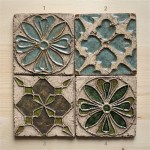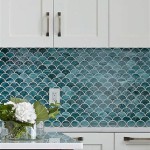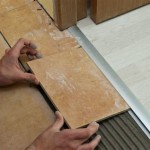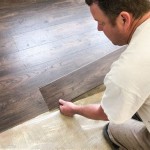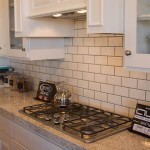When it comes to choosing the perfect tiles for your home, there is a wide variety of options available. Two of the most popular choices are porcelain and ceramic tiles. Both have their own unique features that make them suitable for certain applications, so it’s important to understand the pros and cons of each type of tile before making a decision.
Porcelain tiles are made from a special type of clay called kaolin, which is fired at a higher temperature than ceramic tiles. This makes porcelain tiles more resistant to moisture, heat, and wear and tear. They are also denser and less porous than ceramic tiles, making them ideal for areas that may come into contact with water, such as the kitchen or bathroom. Porcelain tiles also come in a wide variety of colors and patterns, making them perfect for achieving a custom design.
Ceramic tiles, on the other hand, are made from a mixture of clay, minerals, and water. They are fired at a lower temperature than porcelain tiles, making them less durable and more prone to staining and damage. Ceramic tiles are also less expensive than porcelain tiles, making them a great choice for budget-conscious homeowners. However, ceramic tiles come in a limited range of colors and patterns, so they may not be the best choice for homeowners who are looking for a unique, custom look.
When it comes to choosing between porcelain and ceramic tiles, it’s important to consider the application. Porcelain tiles are best suited for areas that may come into contact with water, such as kitchens and bathrooms, as they are more resistant to moisture and wear and tear. Ceramic tiles, on the other hand, are better suited for areas that don’t come into contact with water, such as living rooms and bedrooms, as they are less expensive and come in a wider variety of colors and patterns.
Regardless of the type of tile you choose, it’s important to remember that proper installation and maintenance are key to ensuring that your tiles last for many years to come. If you’re unsure of how to install or maintain your tiles, it’s best to consult a professional.










Related Posts


